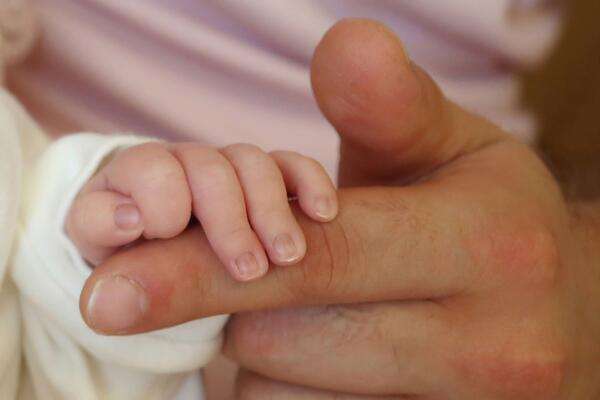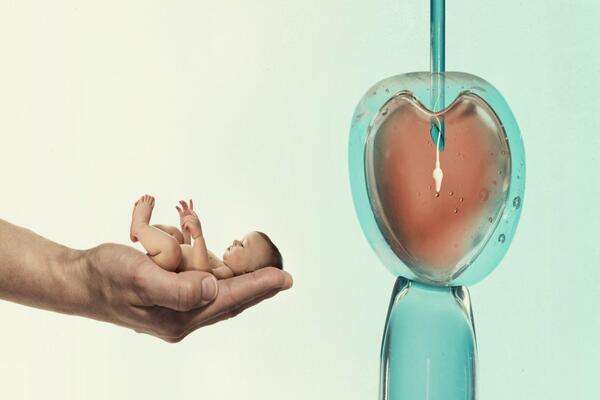
How to make your veterinary hospital a success story
January 28, 2023
How a hospital consultant can be your partner in setting up your IVF Centre
February 2, 2023IVF centres provide the opportunity of parenthood to many. They are the havens of hope to many childless couples. If you are a healthcare entrepreneur interested in providing compassionate and quality healthcare to couples who dream of becoming parents, you can start an IVF centre. However, be sure to keep in mind that the government has stringent regulations and that your centre will have to strictly adhere to these to the letter. Licensing for your proposed IVF hospital is a tedious and time-consuming process.
You will need to be aware of countless government necessities, submit piles of paperwork and fill an innumerable number of forms. If the Medical licensing application process seems like a burden to you, contract it out it to consultants who offer healthcare licensing services. They can help you navigate through these twists and turns smoothly without bumps so that you can dedicate your priceless time to patient care.

Since an IVF hospital is basically a healthcare centre, the licenses that apply to any healthcare facility are common to IVF hospitals. A basic IVF set-up will ideally have basic departments like radiology, ultrasound room, lab for semen collection and other aided reproductive techniques, a pharmacy or chemist outlet, labour and delivery room etc. besides the consulting rooms, reception and the waiting room.
Licensing is mandatory for any healthcare facility. However, the nuances and nitty gritty of norms may differ from state to state in accordance to the local governing medical body.IVF Hospital Regulations you should be aware of
1. Registration with the Clinical establishment Act
Like any hospital, an IVF centre will have to mandatorily be registered under the Clinical Establishment Act. This certification ensures that your hospital maintains a standard of facilities and services provided to the patients and regulates that your centre has the competence and the capability in terms of infrastructure and expertise to function without compromising the welfare of the public.
2. Physician’s license
Every medical practitioner has to compulsorily have the license to practice. If any physician on the panel of your IVF hospital set-up does not have an updated license, legal action can be taken.
3. Land/ space permits
Even before the first brick is laid and your construction is begun, you must take permission from the local government to use the site for a healthcare set-up construction This is known as a Land permit. The local governing body authorities will visit your site and inspect the construction plan, the land, and the likely environmental impact. Only when they are satisfied that everything is at par, they will issue this permit.
4. Water and Electricity Permits
An IVF hospital, like any other healthcare set-up, will require tons of water and electricity.Water and electricity permits from the local governing body and the electricity board are needed.
5. NABH and JCI
NABH {National Accreditation board for healthcare} and JCI are two National and International Quality Accreditations that every Healthcare facility must be compliant to. This includes IVF hospital. The NABH certification validates patient safety precautionary protocol and the quality of services. It has been made mandatory by all Insurers. In case your IVF centre aims to cater to Medical Travellers from other countries [Medical tourism}, the JCI certification is essential.
6. NABL
Since an IVF hospital will require highly advanced, state-of-the-art labs for testing the results of assisted reproductive techniques, your set-up will mandatorily require a NABL certification.

7. GCP
GCP is an assortment of internationally recognised ethical and scientific quality requirements for designing, conducting, recording and reporting research that involves human participation. An IVF facility will also require certification from good clinical practices. (GCP)
8. ART registration
“Assisted Reproductive Technology Clinic”, means any premises used for procedures related to Assisted Reproductive Technology. Your hospital will have to be registered under this section.
9. NBC
The National Building code is a statutory requirement that has to be procured before Construction of any building including an IVF hospital. This certification validates that you are constructing your building as per designated norms.
10. AERB
An IVF hospital will house ultrasound machines and X-ray machines. Hence, an AERB certification that validates that the radiation is not causing harm to health and to the environment is mandatory.
11. PCBNDT
In India, the evil of female infanticide had become rampant. Sonograms were done to determine the baby’s gender in the womb. If the foetus was female, abortion was carried out in the prenatal stages. To stop this criminal practice, the Pre Conception, and Prenatal Diagnostics Techniques (Prohibition of Sex Selection) Act was passed banning gender determination of the foetus. The PCBNDT certificate will validate that your hospital does not carry out illegal sex determination in the womb.
12. MTP registration
An obstetrician-gynaecologist licensed under MTP Act is a medical professional authorized to perform a medical abortion. Sometimes, after an IVF procedure too, medical termination of the pregnancy is required due to complications or non-viability of foetus. Your physicians have to be registered for this procedure or it can invite legal hassles.
13. Drug sale license
If your IVF hospital has a pharmacy shop within its premises, it will require a drug sale license.
14. Biomedical waste authorization certificate
Like any other healthcare unit, your IVF Hospital will generate tons of biomedical wastes. These wastes can be harmful to the environment if they are not disposed of in a proper manner. You will have to make arrangement for this by using furnaces, autoclaves and sewage treatment plants. You will have to procure a Biomedical waste authorization certificate from the sanitation department of your city.
15. Fire safety certificate
Fire is a peril that can destroy life and property. The fire safety certificate tests and validates your IVF hospital’s fire safety protocol.
16. NOC
The municipality department of your city or the panchayat of your village will have to give a nod of approval before you start your IVF facility. Moreover, if you are starting your IVF centre in a society, the NOC from the society managing committee is needed
To summarize, setting up an IVF hospital will involve racing on the hurdle race track of mandatory legal and regulatory regulations like licensing permits. We know that a busy medical practitioner like you may not have the time to engage in the humdrum and time-consuming legwork of collating all this paperwork. Do not worry, contact Hospertz, a leading hospital consultant of India. We will reduce your load by sparing you the monotonous hassles of the medical license application and make the whole process fast and frustration-free .
Blog has been written by Dr. Vishal Jadhav, a veteran in the field of hospital consultancy with a rich experience of more than 20 years and founder of the Healthcare Consultancy Firm, Hospertz.
Dr. Vishal Jadhav, Director
Linkedin: Dr Vishal Jadhav
hospertz@gmail.com
+91 9867712705/ 9820833149
